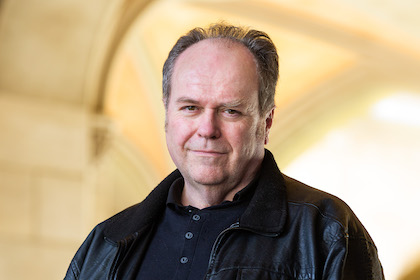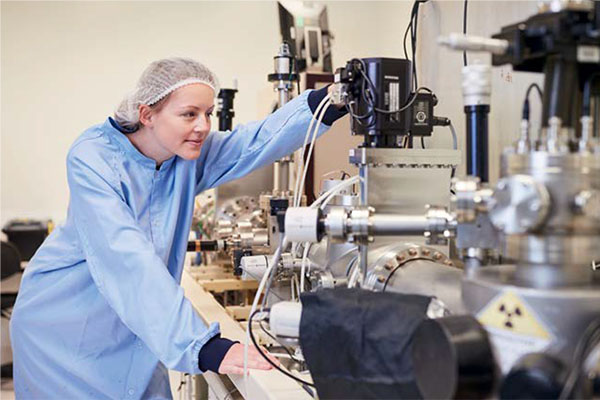About the School of Physics
The School of Physics at the University of Melbourne is dedicated to exploring the fundamental laws of nature, harnessing the potential of physics to solve societal challenges and training the next generation of physicists.

Head of School's Welcome
The School of Physics exists to expand our understanding of the mysteries of the universe and to inspire and educate the next generation of physicists.
We love to share our research and passion for physics, and to build public understanding of the natural laws that shape our lives and how we can use them to make the world a better place.
We value intellectual creativity and curiosity, equity, integrity, and we are a collective that supports excellence and embraces the lively and respectful discussion of ideas.
Our School community is broad but united by a love of physics. It includes our academic and professional staff, our postgraduate and undergraduate students, our valued alumni, our funders and collaborators, and anyone who shares our curiosity for how the world and the universe works.
With 13 disciplines, membership of five Australian Research Council Centres of Excellence and state-of-the-art facilities, the School of Physics is one of the leading physics departments in Australia. It has an internationally respected reputation for its research excellence, undergraduate courses, and challenging and rewarding postgraduate experience.
Going back to our founding in 1882, the School has participated in some of the biggest advances in 20th century physics.
As we approach the second quarter of the 21st century, we continue to pursue the most intriguing fundamental and applied questions, and we are proud and active members of the vibrant global community of physicists.
Our scholars in astrophysics, theoretical particle and experimental particle physics explore questions relating to the origin, evolution and fate of our universe. We study matter and light interactions, advanced materials, quantum information science, photonics, nanoscale imaging and nanoelectronics, and host interdisciplinary teams of physicists, biologists and chemists studying biological molecules.
In exploring the world around us, we acknowledge and honour Indigenous Australians as our first scientists, and holders of knowledge about of Australia’s land, waters, and sky.
We are committed to providing an inclusive, diverse, and equitable environment for our academic and professional staff and for our students, where everyone belongs and is allowed to be themselves.
More broadly, we are particularly committed to reducing barriers that reduce the representation of women, LGBTIQ+, people from culturally and linguistically diverse backgrounds, and Aboriginal and Torres Strait Islanders in the field of physics.
Featured content
-
Our history
The first lectures in physics at the University of Melbourne were taught in the 1860s originally within the Faculty of Medicine; it was then known as 'natural philosophy'.
-
Our people
Find out who's who in the School of Physics and contact details for academic and professional staff.
-
Equity and diversity
The School of Physics is strongly committed to providing support and resources to create an equitable environment for all members of the department, including students at all levels and visitors.

Health and safety
Students and staff in physics work with cutting edge equipment like lasers, particle accelerators and high vacuum systems. We put environmental health and safety at the core of our activities.
Get in contact with us
Whether you're an academic, a current or potential student or a member of the media or the general public, you're more than welcome to get in touch with us.